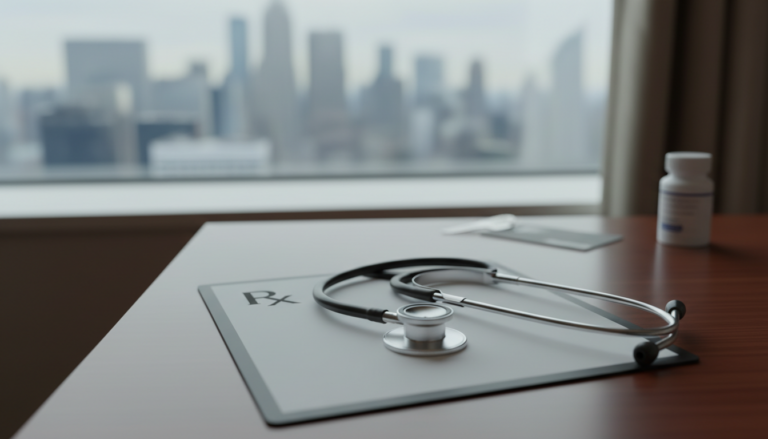Escherichia coli (E. coli) is a type of bacteria that can be found in the intestines of both humans and animals. While most strains of E. coli are harmless, some strains can cause serious illness. In this article, we will discuss the dangers of E. coli and what you can do to protect yourself.
The Causes of E. Coli Infection
Here are some of the most common ways one might contract E. Coli:
Contaminated Food and Water
The most common way that people become infected with E. coli is by consuming contaminated food or water. This can happen when food or water is contaminated with E. coli from animal or human feces. E. coli can be found in a variety of food products, including raw or undercooked meat, unpasteurized dairy products, and fresh produce that has been contaminated during processing.
Person-to-Person Contact
E. coli infection can also be spread from person to person through contact with feces. This can happen when an infected person does not wash their hands properly after using the bathroom and then touches objects or surfaces that others come into contact with. This is why it is important to always wash your hands after using the bathroom or handling potentially contaminated objects.
In addition to touching objects, E. coli can also be spread through sexual contact. This is because E. coli bacteria can be present in the rectum and can easily be passed to another person during sexual activity. It is important to practice safe sex to reduce the risk of spreading E. coli and other sexually transmitted infections.
Furthermore, caring for someone who is infected with E. coli can also put you at risk of contracting the infection. This is because the bacteria can be present in the infected person’s feces and can be spread to others if proper hygiene practices are not followed. If you are caring for someone who is infected with E. coli, it is important to take extra precautions to protect yourself from becoming infected as well.
In summary, E. coli infection can be spread through person-to-person contact in a variety of ways, including through contact with feces, sexual contact, and caring for someone who is infected. It is important to practice good hygiene and safe sex practices to reduce the risk of spreading the infection.
Contact with Animals
E. coli infection can also be spread through contact with animals, particularly those that are raised for food. This can happen when people come into contact with animal feces or when animal products are not handled properly during processing. People who work with animals, such as farmers or veterinarians, are at a higher risk of E. coli infection.
It is important to note that there are many different ways in which people can come into contact with animal feces or improperly handled animal products, thus increasing their risk of E. coli infection. For example, individuals who consume meat or dairy products that have not been properly cooked or pasteurized may be putting themselves at risk. Additionally, individuals who come into contact with animal feces while hiking or camping may also be at risk.
Furthermore, it is important for individuals who work with animals to take extra precautions in order to minimize their risk of E. coli infection. This may include using protective clothing and gloves, washing their hands frequently, and properly sanitizing any equipment or tools that come into contact with animals or animal products. By taking these steps, individuals can help to prevent the spread of E. coli infection and protect their health.
The Risks of E. Coli Infection
When food or water is contaminated with E. coli, the bacteria can cause infection in the digestive system, leading to symptoms such as diarrhea, abdominal pain, and vomiting. In some cases, E. coli infection can also lead to more serious complications such as kidney failure.
While anyone can become infected with E. coli, certain populations are at a higher risk. Young children, elderly adults, and individuals with weakened immune systems are more likely to experience severe symptoms and complications from E. coli infection.
Prevention, Diagnosis, and Treatment
E. coli infection can be prevented by adopting a few simple habits that promote good hygiene and food safety. Regular hand washing is essential, particularly before handling food, to reduce the risk of infection. Properly cooking and storing food is also important to ensure that food is not contaminated. In addition, it is advisable to avoid consuming raw or undercooked meat, unpasteurized dairy products, and untreated water, especially in areas where water quality may be uncertain.
If you suspect that you have been infected with E. coli, it is important to seek medical attention as soon as possible. While most cases of E. coli infection will resolve on their own within a week or two, some cases can be more severe and require hospitalization. Treatment may involve the use of antibiotics, and in severe cases, intravenous fluids may be needed to prevent dehydration and kidney failure. In some cases, surgery may be necessary to remove damaged tissue or repair any complications that may have arisen due to the infection.
Conclusion
E. coli infection can be a serious and potentially life-threatening illness, particularly for vulnerable populations. By practicing good hygiene and food safety habits, you can help reduce your risk of infection. If you do experience symptoms of E. coli infection, seek medical treatment right away to prevent complications. Stay safe and stay healthy!

